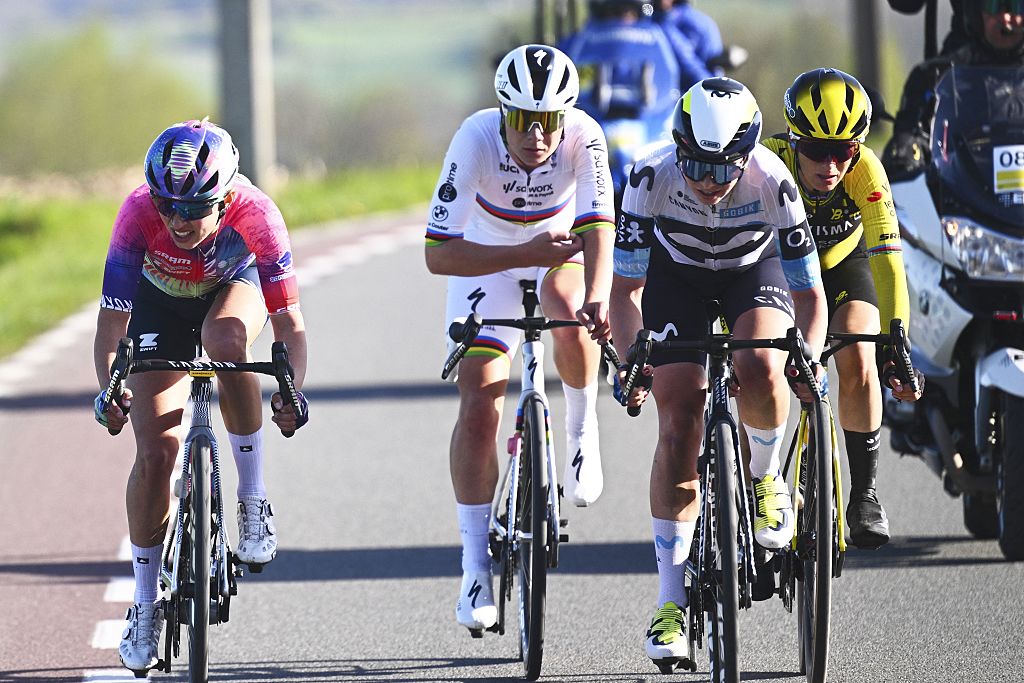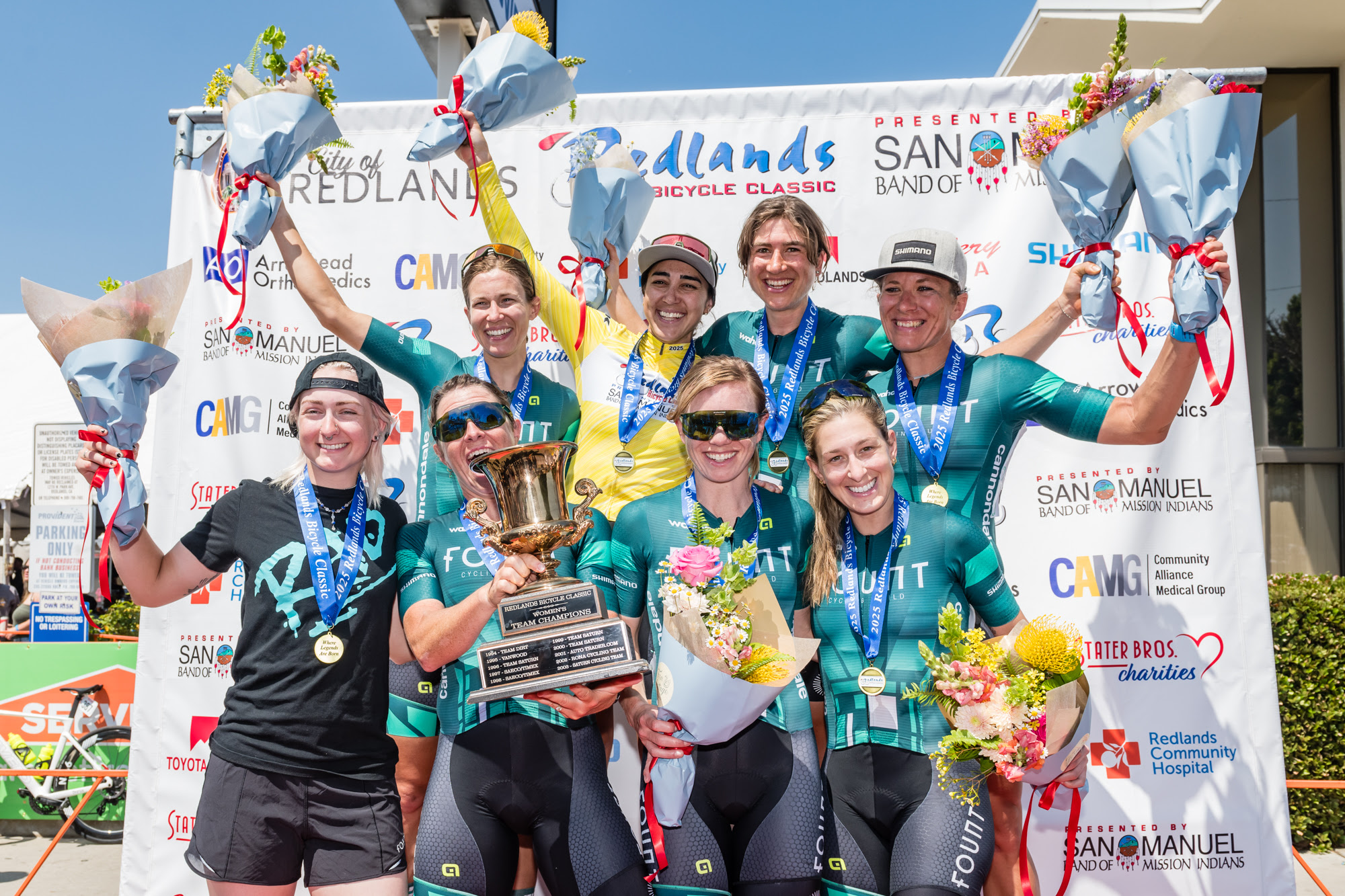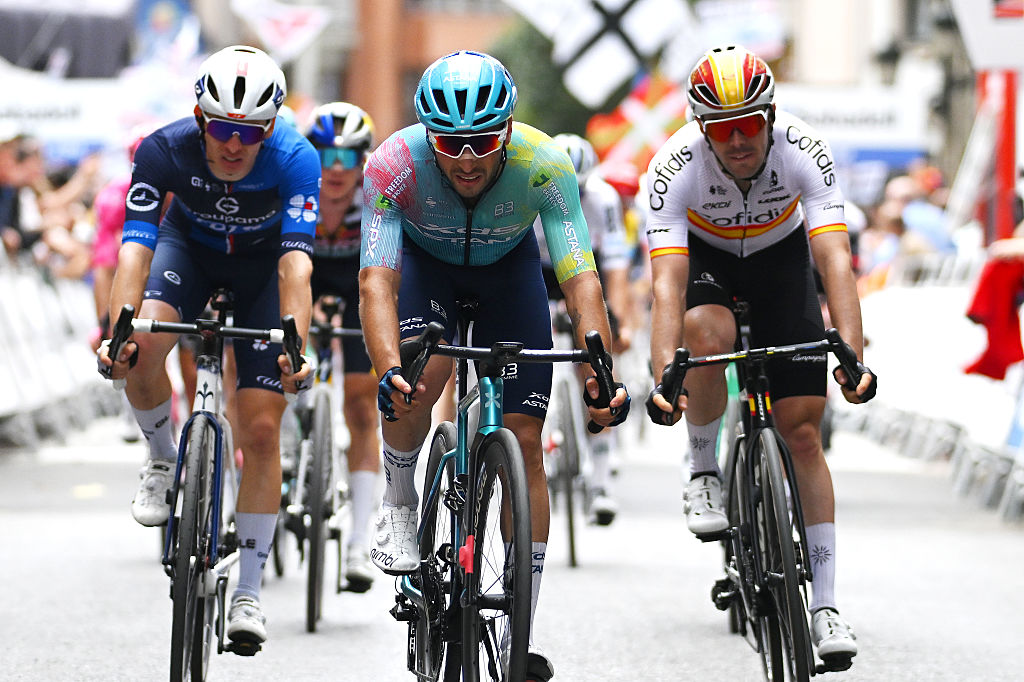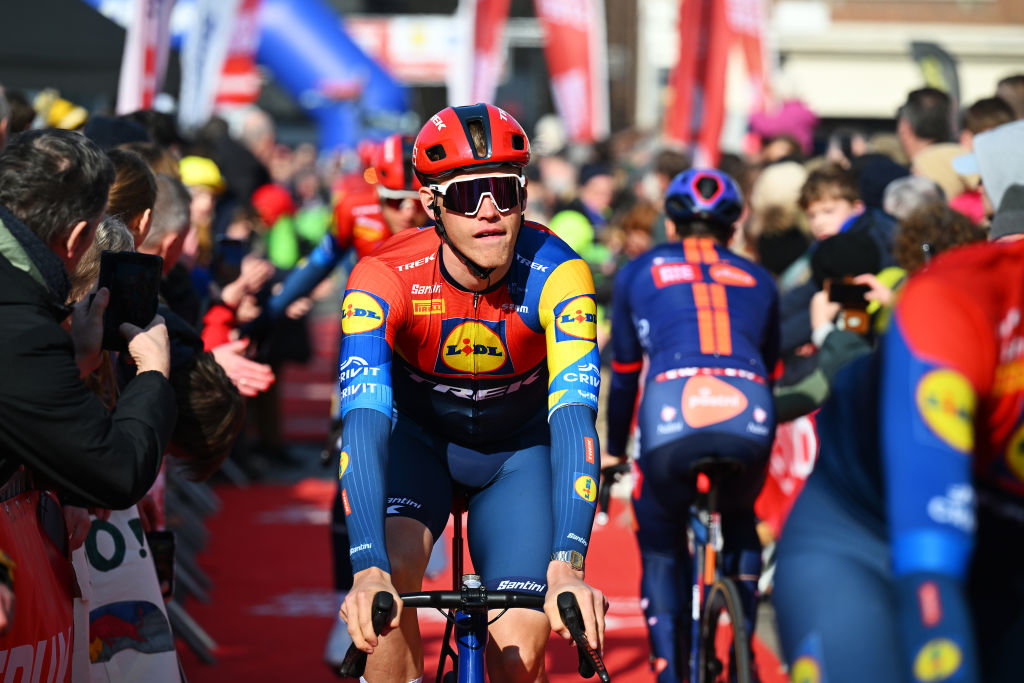Take two: this time it is Vino
Alexandre Vinokourov is regarded as one of the toughest fighters in bike racing, and underlined that...
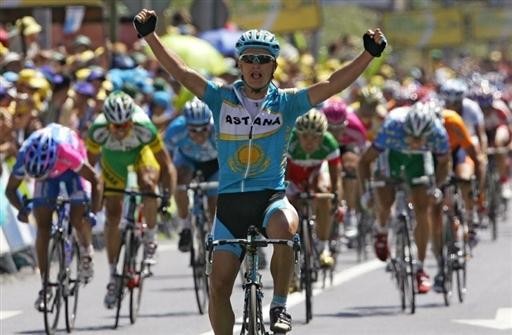
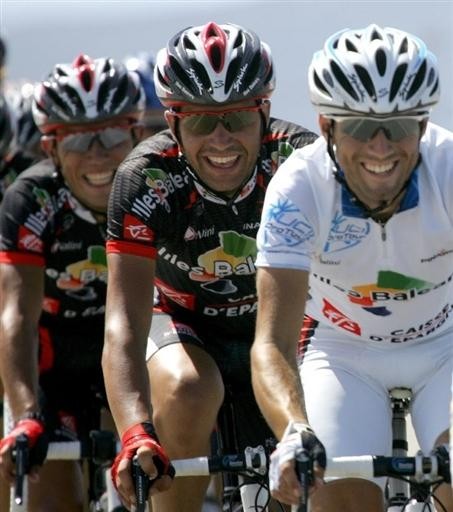
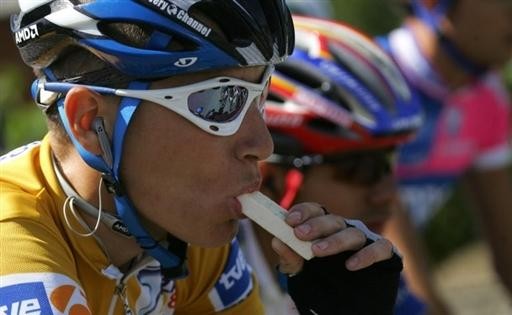
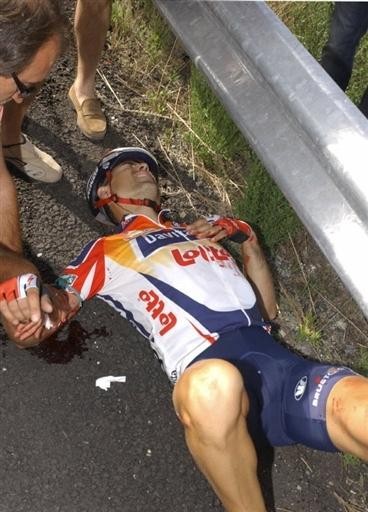
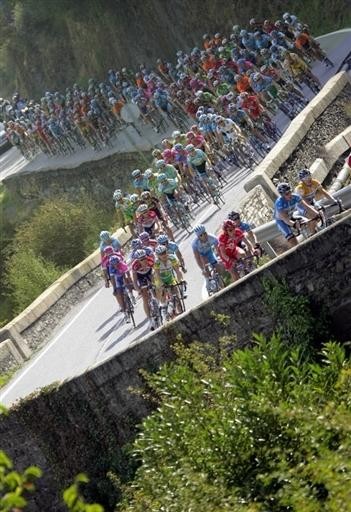

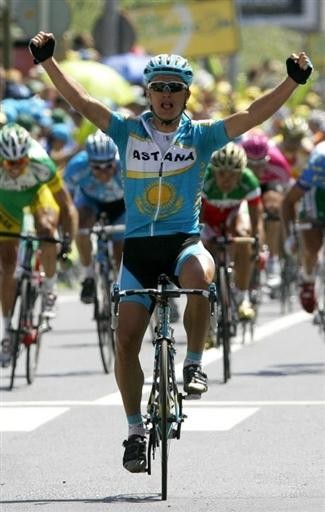
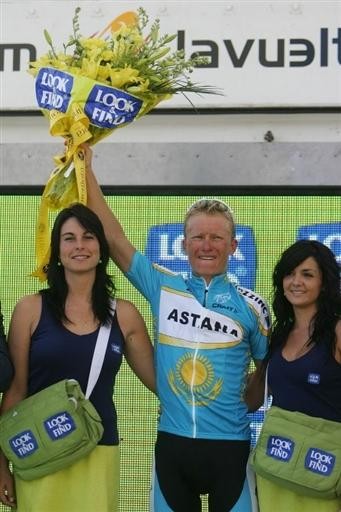
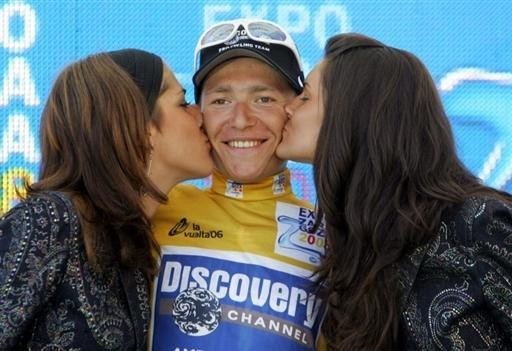
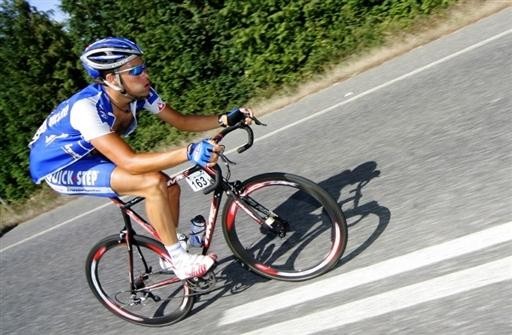


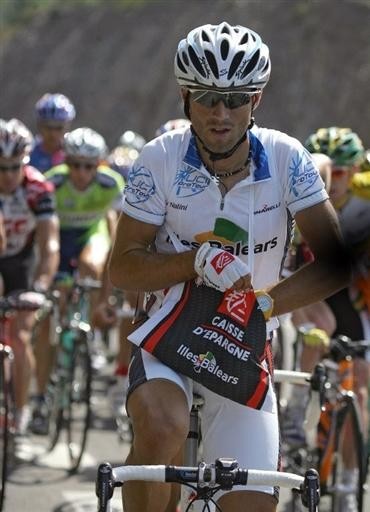
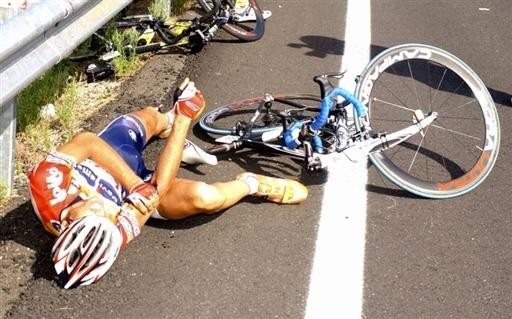

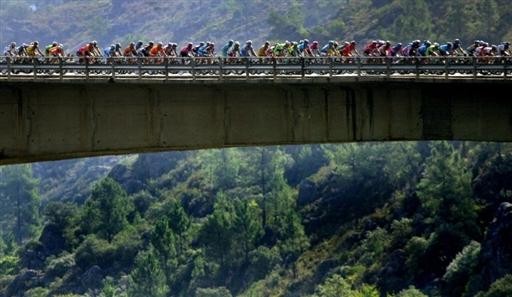

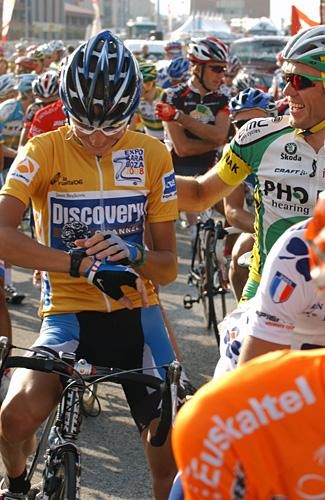
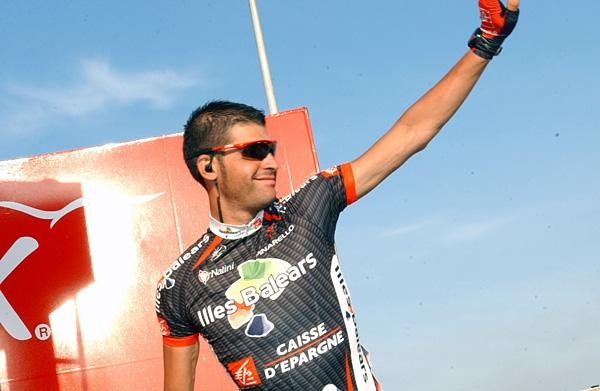
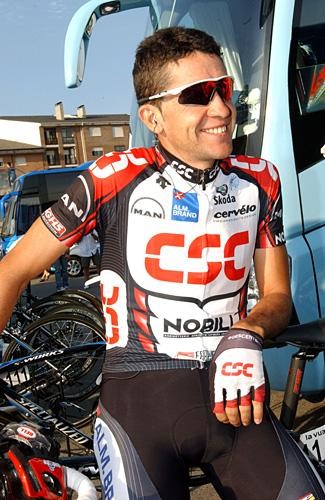
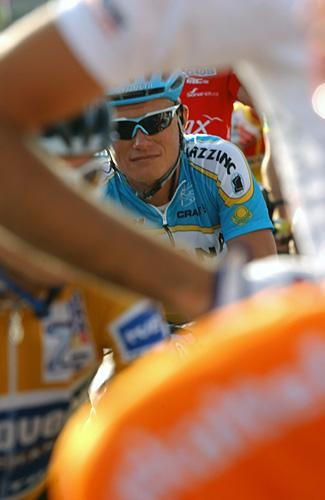
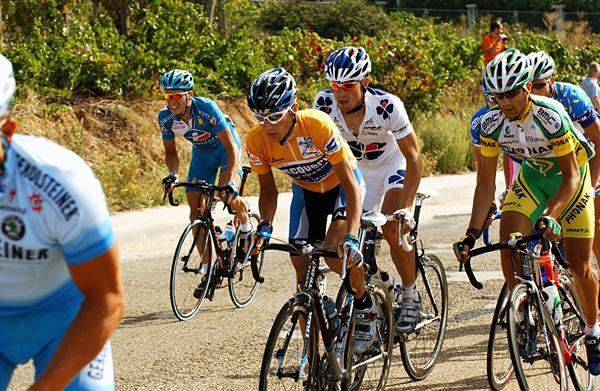
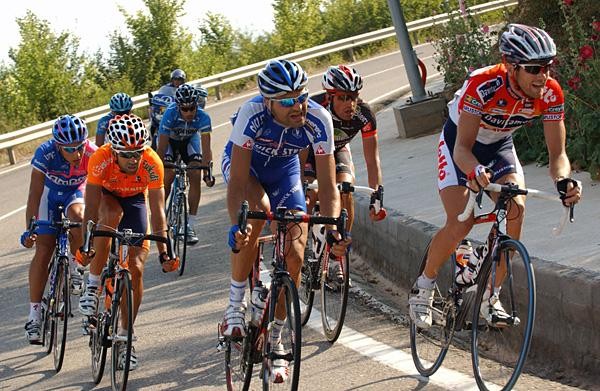
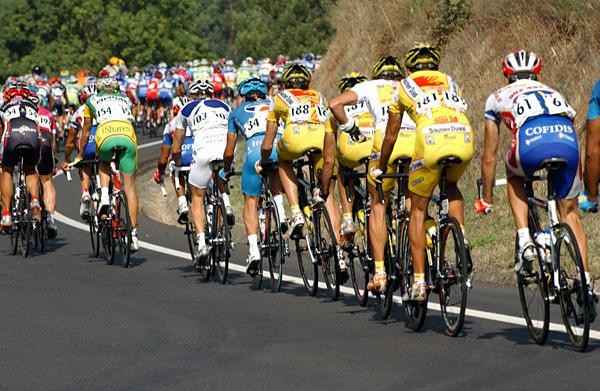
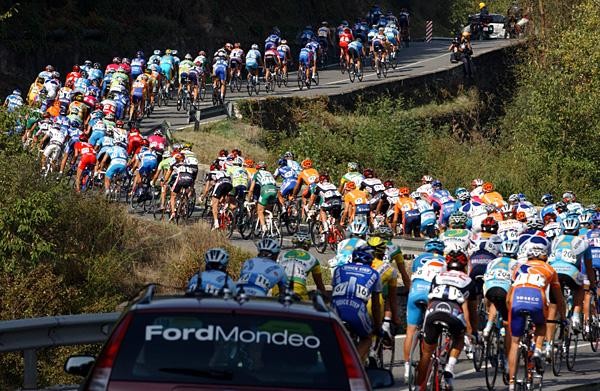
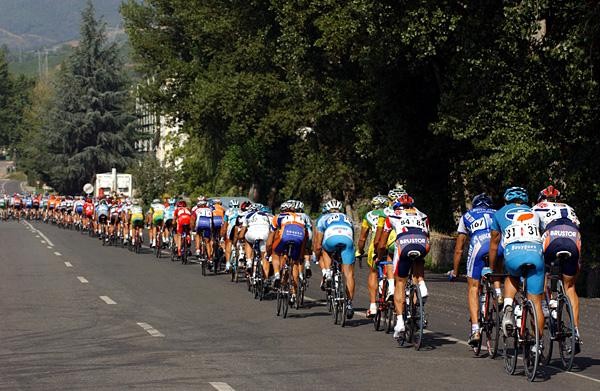
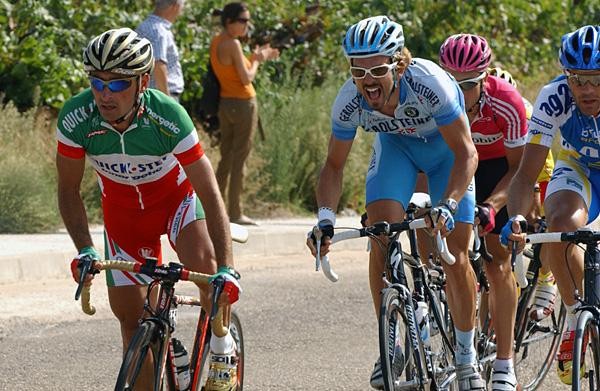
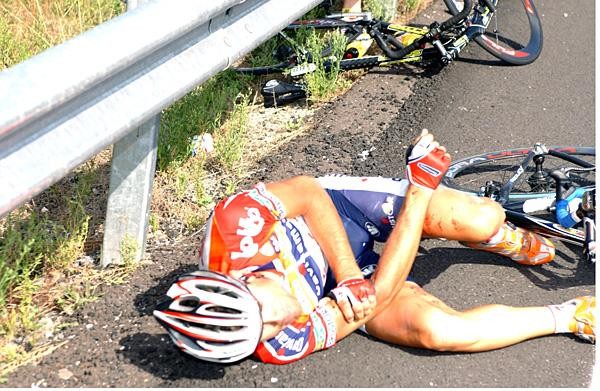
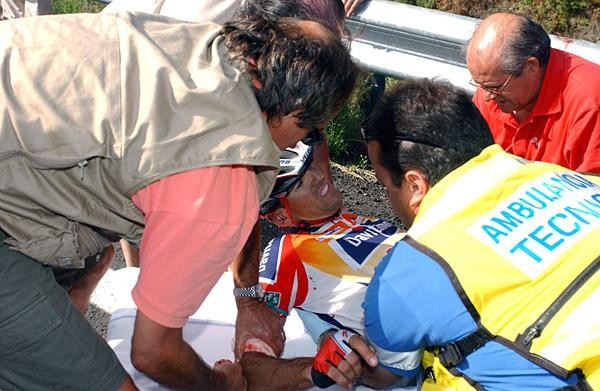
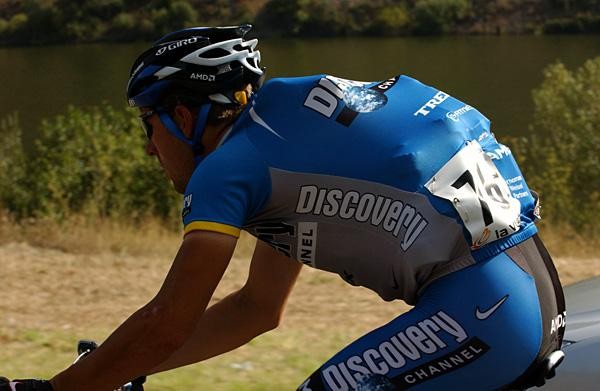
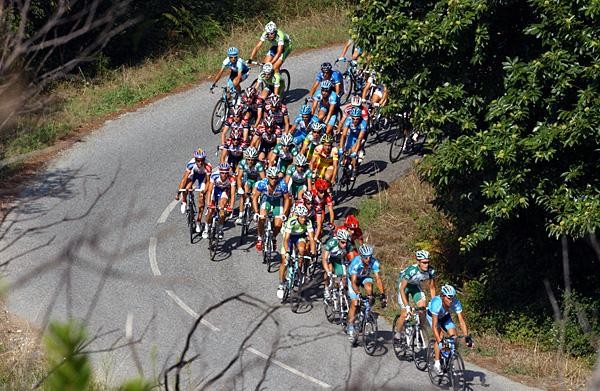
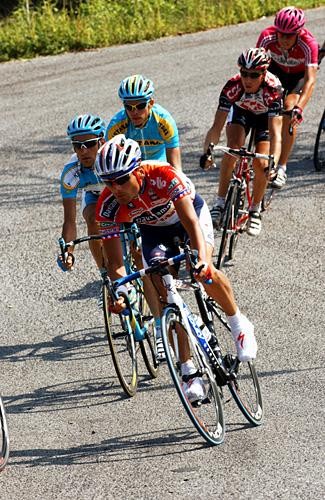
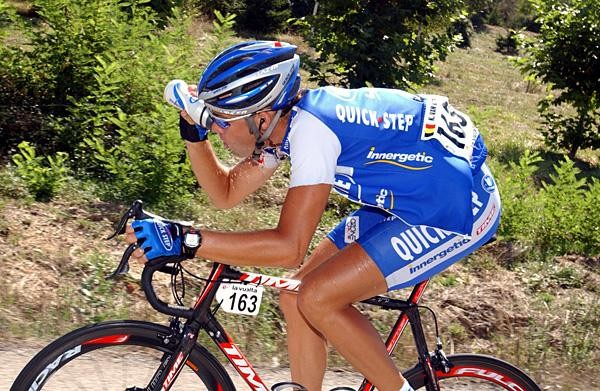
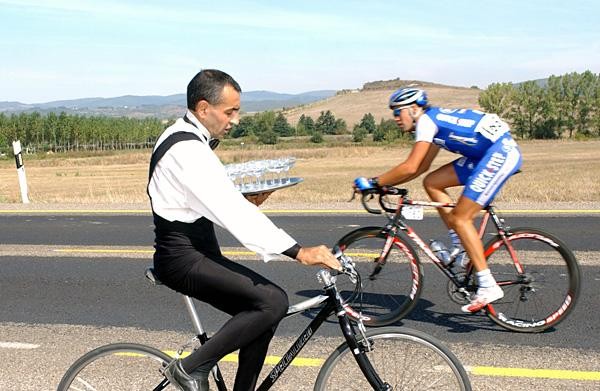
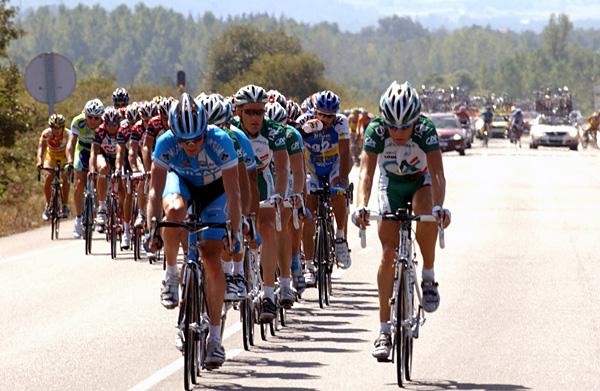
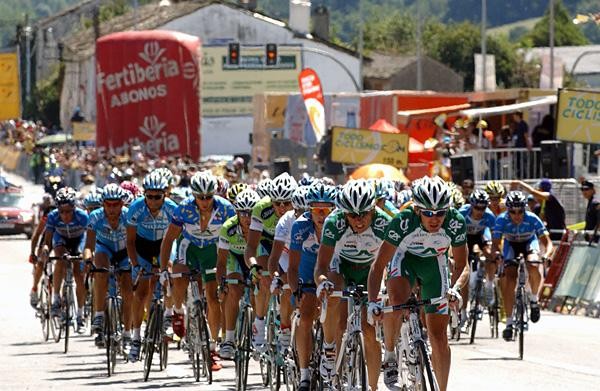
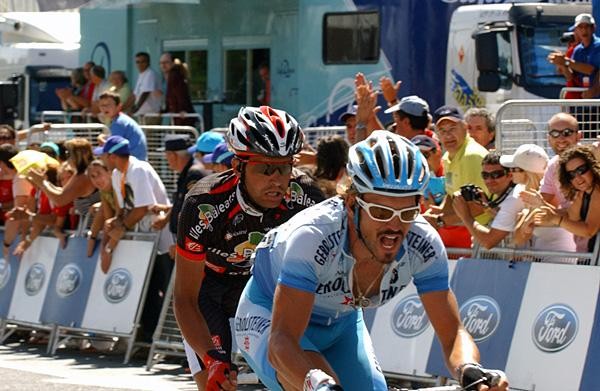
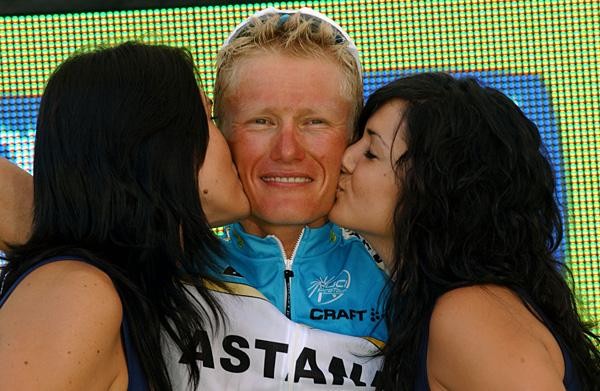
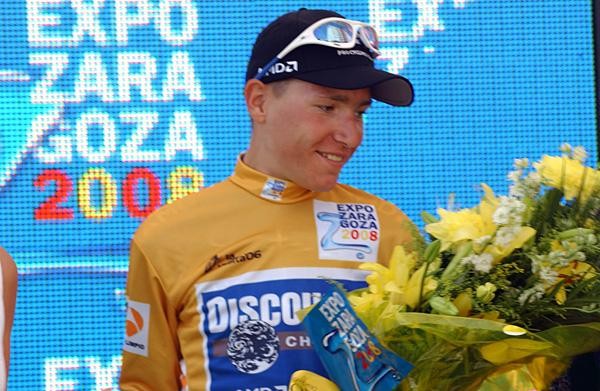
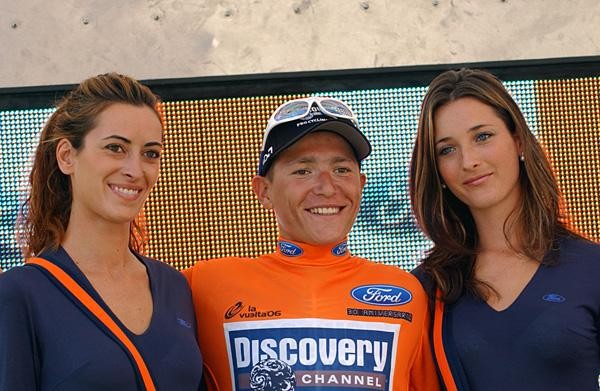
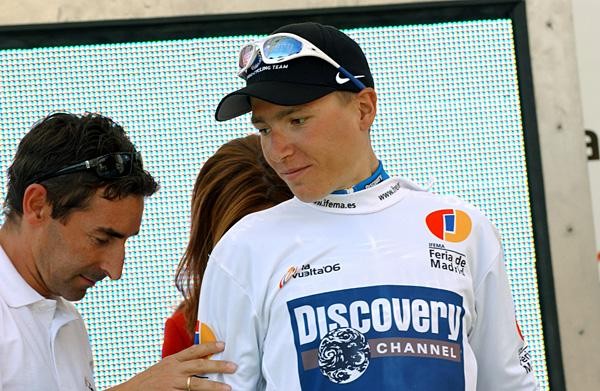
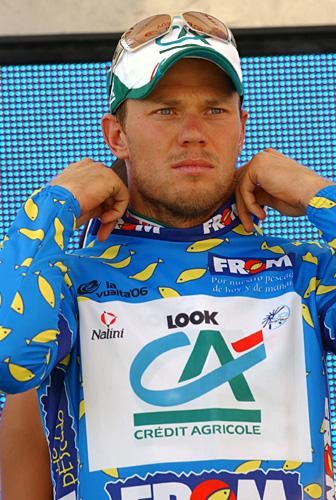
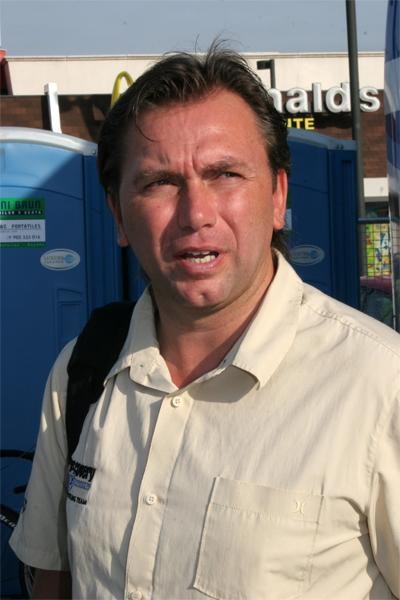
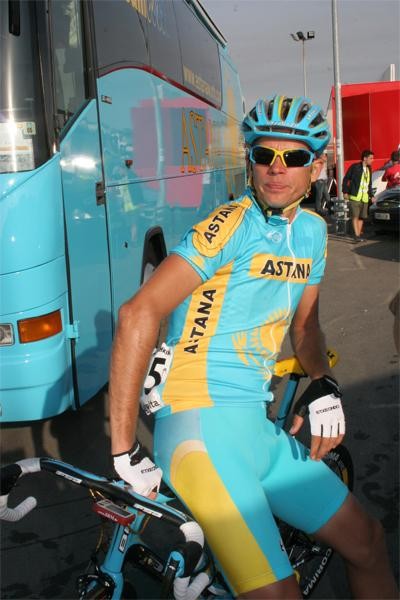
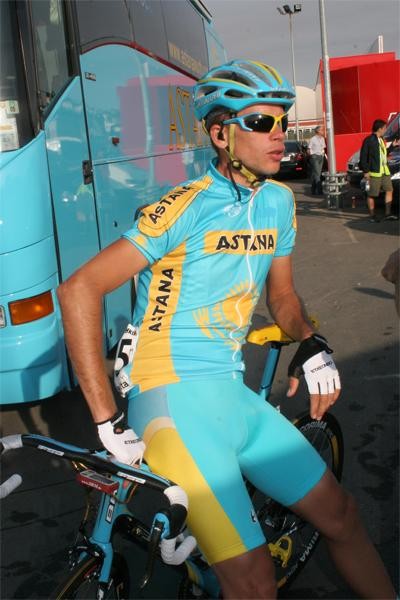
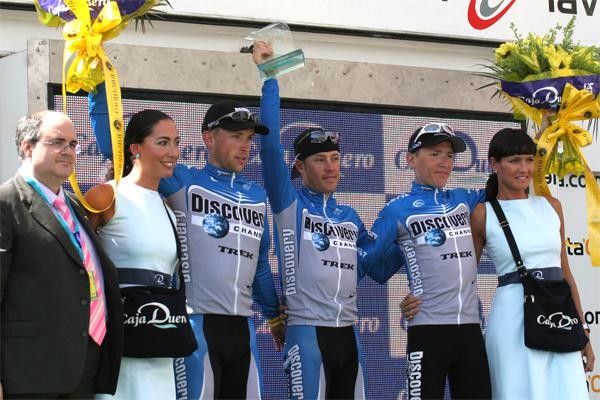
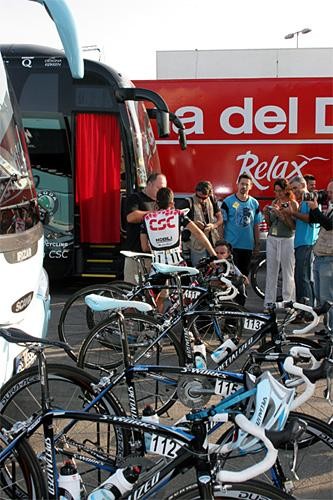
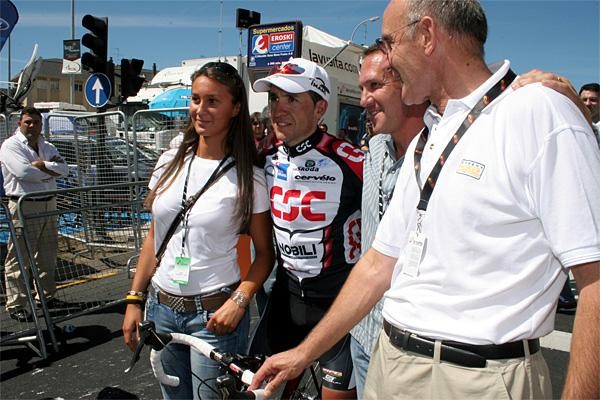
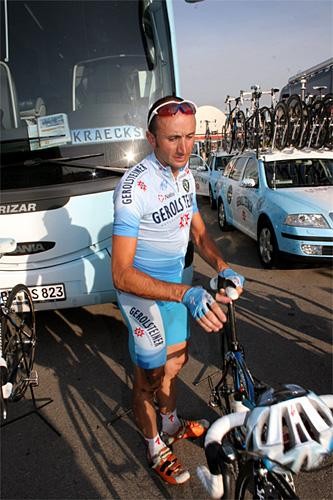
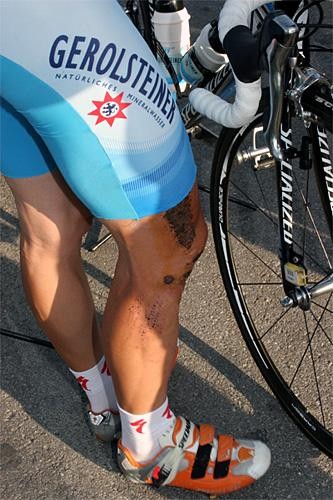
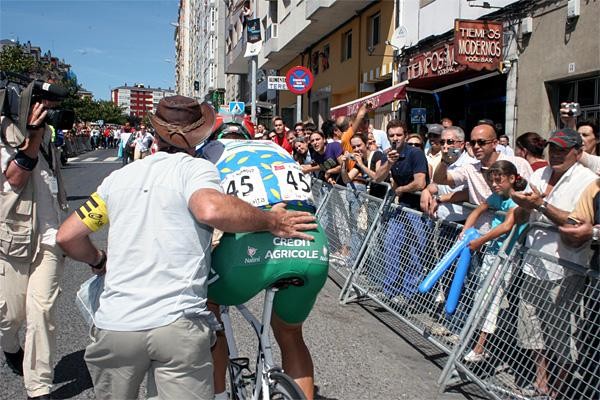
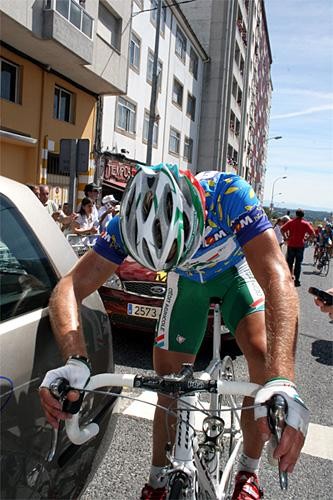
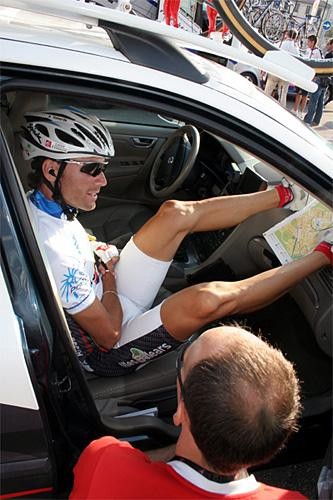
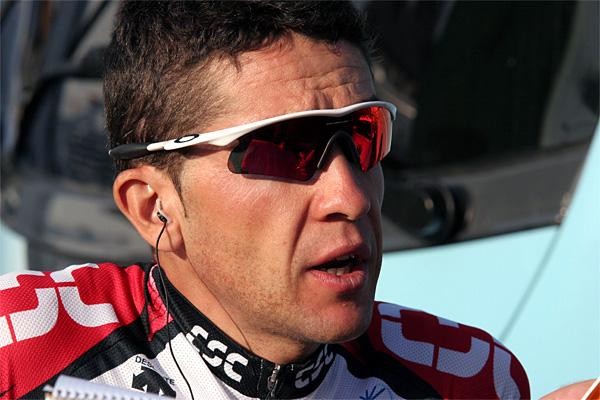
Brajkovic retains maillot oro on eve of big mountain stage
Alexandre Vinokourov is regarded as one of the toughest fighters in bike racing, and underlined that resilience this afternoon when he bounced back from yesterday's disappointment to triumph in the Galician town of Lugo.
The 32 year old Kazakhstani had looked set to take the win on stage seven but was overtaken by a runaway train called Alessandro Valverde within sight of the line. There was no such turnaround today, with Vino surging clear on the uphill rise to the finish and coming home well ahead of the rest of the field.
"I am happy to win," he said at the finish. "Being passed yesterday was difficult to take but today the win is good for my team and good for me. When we went through the finish line for the first time today, I saw that there was a small hill so I knew I had a chance. I took that opportunity and it worked out well.
"This result is certainly important for the team after what we have been through. It's also important for me as it confirms that I am in form. I am ready for tomorrow's stage."
He was motivated by the visit due later in the afternoon by Kazakh prime minister Danial Akhmetov, a man who played a major part in the recent formation of the Astana squad. But another motivation was what happed to the team as a result of the Operación Puerto affair, namely their inability to participate the Tour de France after several riders were barred from starting.
It's clearly a sore point, as a journalist found out when he asked Vinokourov how he felt about being excluded from the Tour. "I was not excluded," he answered. "We couldn't start because we didn't have enough riders. That was a decision taken by other people, but it is not accurate to say that I was excluded. It was very disappointing for me, especially because after the Tour, Contador was given clearance to race once more. That makes it even worse."
Vino was also asked about losing more than two minutes in first mountain stage. "It is true that I lost time then, but yesterday I was there. My motivation hasn't been knocked. The Vuelta lasts another two weeks and I don't think two minutes is such a big gap. Of course, I think it is a pity, but tomorrow will be a hard stage. I recovered well from yesterday and I am very motivated."
Apart from Vinokourov, continuing race leader Janez Brajkovic and second-placed Alejandro Valverde, two others who are psyched and hope to do well on the gruelling six climb, 207.4 kilometre stage to Alto de la Cobertoria are CSC's Carlos Sastre and Iban Mayo. "Today was fine for me," Sastre told Cyclingnews after the finish. "It was a really fast day but everyone was trying to save energy and be calm for tomorrow.
"We will see how things go then. I think the last two days in the mountains were positive; I didn't lose any time with respect to the important guys and I am in a good position. This is the most important thing at this point. Tomorrow will be an important stage and I think the difference between the important riders could well be a lot bigger than they are now. I am really calm and really happy with things so far."
Mayo told Spain's Onda Cero radio that he is hoping to ride more consistently from this point on. "I was better yesterday [than the first day in the mountains] but the finale was too strong... In the end, I made a move in order to win with three kilometres to go, because I knew [Alejandro] Valverde is unbeatable in a sprint with a finale like that. Valverde controlled my attack very closely. Let's see if tomorrow brings luck.
"I am doing better [as the race progresses]. The heat from the first days affected me and now I am riding more strongly. I think the environment in Asturias suits me better so let's see if I do well tomorrow. I think that Valverde is the one to beat. He and Sastre are one step ahead of the rest and I think they will do even better [as the race continues]."
Like Mayo, Tom Danielson is hoping to get stronger. His Discovery Channel squad received the award as best team today and Cyclingnews spoke to him before he headed back to his team hotel. "I felt horrible yesterday. I felt bad the first day in the mountains and yesterday was absolutely horrible…I could have ridden better up that climb in November. If you look at my performances all year, it just doesn't make any sense. I am not sick, there is nothing wrong with me – I have no idea what happened.
"Now I am 4 minutes down. I have already had the disappointments so it can only get better from here. I expect to ride better and hope tomorrow goes as it should."
Oscar Pereiro is another rider who has been less prominent in the mountains than might have been expected. He is paying the price for a crazy post-Tour period, but the Galician rider was motivated today to be racing in his province and gave it a go.
"It was so nice!" he commented. "I have been a professional rider for seven years and this was the first time that I entered Galicia as part of a cycling race. Cycling is very popular here and the Tour of Spain came here for the last time in 1995. Such a long time! To race in the presence of my fellow-citizens has been very special, for me and for them too, especially now that I am officially the winner of the Tour of France."
How it unfolded
Lugo became a Roman war camp in 13 B.C. and was initially named Lucus Augusti. It is the capital of the province of Lugo, one of the four districts that shape Galicia. Lugo’s Roman wall, built in the third and fourth centuries, was declared a World Heritage Site by UNESCO in 2000, and is the greatest attraction of the city.
181 riders took the start in Ponferrada as Steve Zampieri (Phonak) abandoned the race yesterday. The day started with many attacks by Saunier Duval, Relax and other teams without success. The peloton wanted to control the attacks and avoid breakaways, and that meant a very high rhythm: the average speed during the first hour of racing was 53.2 km/h.
Marco Marzano (Lampre) quit the race at km 41 while some riders tried but couldn’t create a gap over the peloton. At the first intermediate sprint in O Barco de Valdeorras (km 43), Sebastien Minard (Cofidis) crossed first followed by Olivier Kaisen (Davitamon) and Thor Hushovd (Credit Agricole). Finally, at km 68 Kevin Van Impe (Quick Step) was the lone rider who was capable of getting in a breakaway. A few kilometres later, there was a massive crash and Josep Jufre (Davitamon) abandoned the race at km 73. Jufre sliced an artery in his arm open on a roadside barrier and lost between 1 and 1.5 litres of blood. He was taken to hospital for treatment.
At the second intermediate sprint in Quiroga (km 80), Van Impe crossed first, 5'40 ahead of the peloton. Hushovd was second and Enrico Poitschke (Milram) third there. Eight kilometres further, on the only climb of the day (Alto de Ares, Cat. 3), the Quick.Step man kept the gap at 5’48. Pietro Caucchioli (Credit Agricole) reached the summit of the climb in second place and Jose Elias (Relax) in third inside the peloton. Van Impe maintained his lead and rode 4’55 ahead of the bunch at km 114, but there were more than enough kilometres for the peloton to catch him.
The sprinters' teams were ready to do their job in order to catch the Belgian, and he was well within their sights with just 1'40 advantage at 20 km to go. He was finally caught with 9 km left and the sprinters were ready to party.
Virtual Tour de France winner Oscar Pereiro (Phonak) wanted to do a good performance in front of his home crowd and followed an attack by Rene Haselbacher (Gerolsteiner) as they started the finishing circuit with 8 km left. But that move only lasted a few kilometres as the bunch driven by big Magnus Bäckstedt caught them alongside the Roman wall.
The sprinters got themselves in position for the finale, with Credit Agricole, Milram and Liquigas leading it out. The first part of the final kilometre was uphill, and it played havoc with the chances of the fast men. Luca Paolini (Liquigas) found himself at the front and attacked with 700m remaining, but although he got a small gap, it was too early to go. As the road flattened out slightly, Alexandre Vinokourov went hard with 300m to go, easily passing Paolini and surging to the line for a great victory.
Stage 9 – September 3: A Consagrada-Alto de La Cobertoria, 207.4 km
Tomorrow’s stage will be full of big ups and downs with six mountains: Alto de Miñide (Cat. 3 – 510 m. above sea level – km 4), Puerto de Connio (Cat. 1 – 1,315 m. – km 50), Puerto de Rañadoiro (Cat. 1 – 1,140 m. – km 75.3), Puerto de Cerredo (Cat. 3 – 1,360 m. – km 102), Alto de San Lorenzo (Cat. special – 1,350 m. – km 166.6) and Alto de La Cobertoria (Cat. 1 – 1,170 m. – km 207.4 finish). There are two intermediate sprints: San Antolin (km 29) and San Martin de Teverga (km 177.8).
It will be an exhausting and tough stage for all the riders. Alto de San Lorenzo is very high but 40 km to the end, so La Cobertoria at the end should be the decisive climb. TYhis is a key stage for all the favourites.
Get The Leadout Newsletter
The latest race content, interviews, features, reviews and expert buying guides, direct to your inbox!
Latest on Cyclingnews
-
Women's WorldTour – The definitive guide for 2025
Everything you need to know about the top-tier professional racing series, teams, races and world ranking -
Alia Shafi delivers GC victory at Redlands Bicycle Classic with Fount Cycling 'guns a blazing' start to finish
Eder Frayer scores close GC victory for men by 10 seconds over Quinn Felton -
Relegation Watch 2025: XDS Astana's momentum accelerates as Picnic-PostNL, Arkéa-B&B Hotels stall in Spring Classics
XDS Astana on track to surpass Picnic-PostNL, Cofidis -
'The possibilities are endless' - Jakob Söderqvist set to move up to the WorldTour with Lidl-Trek in 2026
'Stepping into the WorldTour team means the start of a new chapter in my sporting career' says Swedish time triallist
